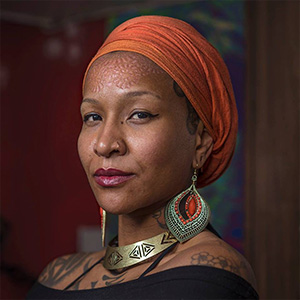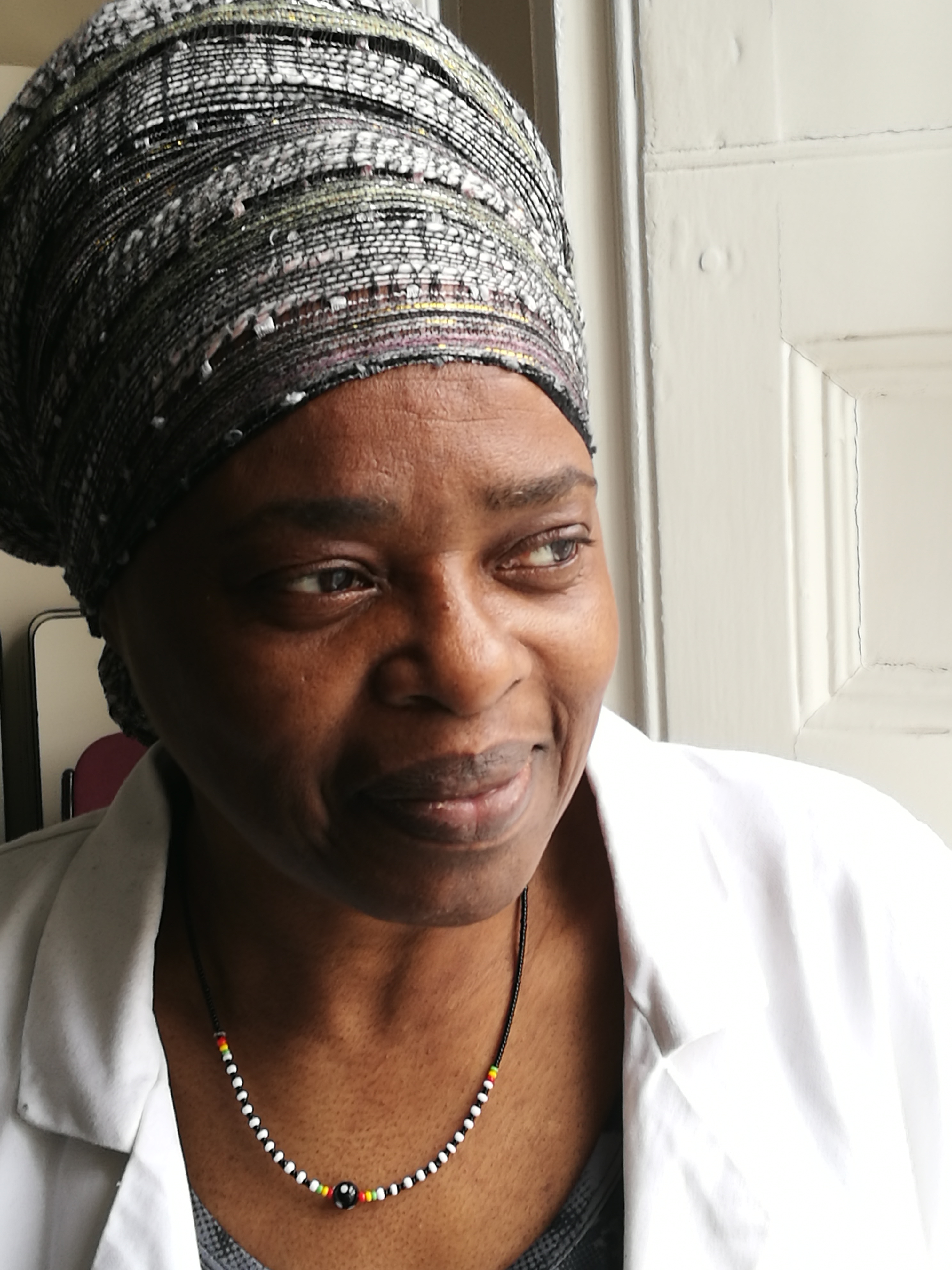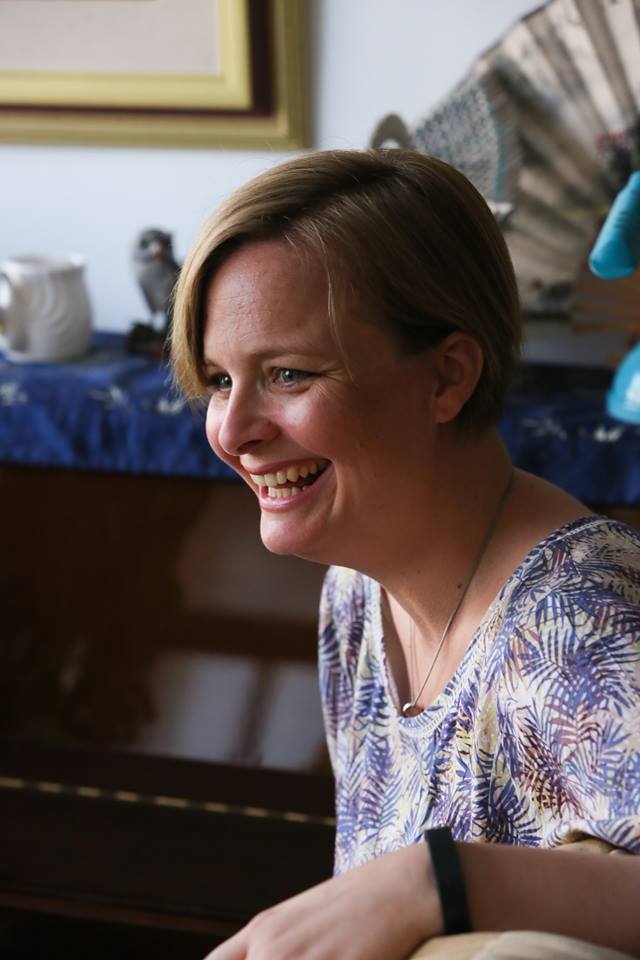Quality Assurance and Enhancement Handbook
College of Integrated Chinese Medicine
Quality Assurance and Enhancement Handbook
Contents
7.1 Student and Staff Consultative Committee. 11
7.2 Student Representation on Management Committees. 11
Appendix 1: QAC Terms of Reference. 13
1. Introduction
Our aim at the College of Integrated Chinese Medicine (CICM) is to graduate safe, confident and competent acupuncture practitioners. To achieve that aim we focus on the quality to ensure that our approach to the student experience and the courses we deliver is one of continuous improvement. In this Quality Assurance and Enhancement Handbook we bring together information about all the processes we use to assure the standard of the award and the quality of our student learning opportunities.
Responsibility for quality assurance within CICM rests with our Quality Assurance Committee (QAC). A copy of its terms of reference are included in this handbook (Appendix 1).
Our BSc (Hons) Acupuncture is accredited by Kingston University. As a partner in a collaborative arrangement we are subject to the quality assurance processes of Kingston University[1]. We are also accredited by our professional body, the British Acupuncture Accreditation Board (BAAB) and comply with the Quality Assurance Agency’s (QAA’s) Quality Code.
This handbook sets out our approach to:
- Annual monitoring
- External examining
- Programme amendment
- Course closure
- Student representation
- RPCL
2. Annual Monitoring
Annual monitoring starts at the micro level with review of each of the programmes delivered within our course and then builds up to macro level course review. To inform our QAE activity we gather views from:
- Students
- Tutors
- Programme leaders and managers
- Guest speakers and lecturers
Our approach to course QAE works over a 12-month period and is designed in accordance with the classic QA cycle:
At the programme level, QAE starts with putting in place the necessary processes to ensure that:
- The programme is well designed
- Materials are clear and support effective delivery
- Tutors have the necessary resources to ensure they are well prepared
- Students have a consistent experience
Each programme is delivered by a team. For every module there is a module guide and for each programme there is a scheme of work which covers:
- Session content
- Session timings
- Key points/notes
Teachers are expected to use the schemes of work to assist with their preparation for each small group session. This helps to ensure that the learning outcomes for each session are always met.
Each programme team meets 3 times a year. The main purposes of the meeting are to:
- Preview the forthcoming programme sessions; the team works through the schemes of work to ensure that everyone is clear about how the session is designed to work, timings and any particularly difficult or challenging issues that are likely to come up and
- Review the previous sessions; the team discusses the review sheets and if there is something which requires immediate change, the programme leader addresses that and agrees a plan with the other tutors for implementation of the change and
- Undertake assessment planning
Prior to each programme team meeting, lecturers identify which lessons worked well and which worked less well. They also suggest areas for change and improvement. These comments are brought to the programme team meetings and discussed.
On conclusion of delivery of the programme, the programme leader pulls together all comments and notes, analyses them and uses the analysis to inform the module enhancement plan which feeds into the Course Enhancement Plan (CEP). The Module Enhancement Plan (MEP) also incorporates an action plan which summarises the changes to be made to the programme before next delivery, when they are to take place and who is responsible for making the changes.
Every year the Academic Director produces a Course Enhancement Plan, which includes:
- Contextual data about the student cohort (age/gender/ethnicity/prior educational achievements)
- Programme reviews
- Pass rates for each assessment and overall
- Summary of student feedback
- Action plan for the following year
The purpose of the CEP is to reflect on the previous year’s delivery of the course and to:
- Identify from a range of perspectives which aspects of the course worked well and what needs to be amended
- Reflect on student performance and identify areas for change
- Formulate an action plan for the next year with clear lines of accountability and delivery dates
The feedback we receive from students is crucial in informing the continuous improvement of our courses and we gather that feedback through a range of means.
We ask students to complete a feedback form on completion of each of their programmes. The programme-level feedback has a learning and teaching emphasis, we ask students to comment on teaching materials, delivery, learning and on their own contribution to the lectures.
We analyse and collate student feedback for each programme and this informs the Programme Leader’s Review and the action plan for the programme for the following year.
Towards the end of their studies, we ask students to complete an evaluation of the overall course. This has a more administrative and resources-led focus. We analyse and collate the feedback, which is discussed at QAC, which then informs the Academic Director’s CEP’s and the Course Action Plan for the following year.
At the end of each cycle the Academic Director amalgamates the programme action plans into a single Course Action Plan, published in the CEP, for the following year. Throughout the next year, progress is reviewed against the CEP is reviewed and checked through the programme team meetings, Programme Leaders meetings and Kingston Board of Study meetings.
3. External Examiners
External examiners play a crucial role in assurance and enhancement of the quality and standards of our courses. Through their expertise and knowledge, they contribute to:
- The maintenance of the standards of awards
- Making judgements about the achievements of our students and
- Comparing our students’ achievements with those of students in other institutions.
Additionally, we anticipate that external examiners will contribute to the continuous improvement of our programmes and courses through their comments, ideas and suggestions.
In accordance with Part B7 Indicator 1 of the Quality Code, we appoint at least one external examiner to each course that we deliver. At CICM we identify External Examiners with an established history of delivery and assessment of the programmes which they are asked to externally examine and/or who are actively practising in the same areas.
External Examiners are formally appointed, employed and trained by Kingston University. We do not expect all of our external examiners to have had previous external examining experience. Where that’s the case, the examiner will be linked to an experienced external examiner to mentor the new appointment.
3.1 Appointment Process
We expect all of our external examiners to meet the requirements of our specification for the role. They should be able to demonstrate evidence of:
- Knowledge of the sector agreed reference points for the maintenance of academic standards and the assurance and enhancement of quality
- Competence and experience of the programme and course content which they will be externally examining
- Relevant academic and/or professional qualifications to at least the level they will be externally examining
- Familiarity with the standard expected of students to achieve the award that is being assessed
- Sufficient credibility and breadth of experience to gain the respect of academic and professional peers
- Compliance with professional, regulatory and statutory body requirements
The appointment of new external examiners is subject to a two-stage process; firstly, we use our internal process at CICM to consider and as appropriate recommend the candidate to Kingston University for final approval and appointment. The step-by-step process is as follows:
If the external examiner’s appointment is confirmed, Kingston University will send out a confirmation letter stating its usual terms.
External examiners are usually appointed for a term of four years with the option to extend in exceptional circumstances for a further one year.
3.2 Induction
Following their appointment, our external examiners are expected to attend KU for induction. Our induction process includes:
- An introduction to CICM, our history, ethos and strategy
- meetings with the programme and module leaders
- Curriculum information
- An overview of the external’s responsibilities in the context of a collaborative partnership with Kingston University
- Details of other external examiners including those who may be acting as mentor to an inexperienced external
- Programme documentation including module information and student handbook
- calendar of events and timetable for external examiner activity including dates for submission and approval of assessments and dates for distribution and completion of marking
External examiners are required to complete an annual report using the Kingston University template[2]. The annual report is distributed to programme leaders and the Academic Director and is available to all of our students on our VLE. In their reports we expect external examiners to consider and comment on:
- The content and structure of the programmes and course
- The appropriateness of learning opportunities for our students
- The quality and fairness of our assessments
- The organisation of and arrangements for the assessment of our students
- The achievement of the cohort
- Achievement by the cohort of students
- Comparability of the standard of our programmes with the national standard
Issues raised by our external examiners, both informally and in their annual reports, are captured by the Programme Leaders and
Academic Director and incorporated into the programme action plans and course action plan for the following academic year. Performance against these actions are tracked throughout the year by the Academic Director and by the Quality Assurance Committee (QAC).
4. Changes to Programmes
There are a number of reasons why changes may be made to our programmes. Some of these arise from student feedback, external examiner feedback, while other might be initiated by our teaching staff.
Where we consider it necessary to make a change, we follow the process specified by Kingston University[3].
Internally at CICM, the process of effecting programme change is initiated by a Programme Leader working with the Academic Director who completes Kingston University’s Form G1-G4[4] depending on the nature of the change proposed.
The completed form is then submitted to the QAC for consideration prior to submission to the Board of Studies for ratification. The QAC considers the form and the proposed changes in accordance with the definitions and criteria set out in Section G of Kingston University’s Academic Regulations, “Changes to validated fields and modules”.
If the QAC supports the proposed change, the completed form is then submitted to the Board of Studies and if then approved to Kingston’s Academic Registry. If the QAC does not support the proposed change, it can advise the Academic Director to:
- resubmit the form to the next meeting or
- withdraw the proposed change
5. Course Closure
In exceptional circumstances, it may be necessary for CICM to consider closing a course. Exceptional circumstances include where:
- There has been a decline in student numbers so that the course is no longer viable
- The course is no longer economically viable
- The PRSB withdraws accreditation
- There is a change in PRSB requirements for acupuncture education and training which CICM is not able to meet
This is not an exhaustive list but is intended as an indication of the type of reasons which would lead us to consider course closure.
The internal process would begin with a formal submission by the Academic Director and Joint Principal to the QAC and to the CICM Executive Committee. The submission would set out the reasons for the proposed closure and an indicative timescale. If QAC and Executive Committee accept that there are grounds for closure, the Course Director would then consult with students. The outcomes of the consultation would then be considered by our Executive Committee and by the QAC. If the Executive Committee and the QAC decided to proceed with closure, we would then prepare a formal closure plan which as far as possible, would take account of students’ views as expressed through the consultation.
The formal closure plan and all documentation necessary to comply with the Kingston University closure process would then be submitted to QAC for its consideration before submission to the Kingston University.
6. Timescales and process
We would usually expect the process of course closure to proceed as follows:
|
Day 1 |
Academic Director and Joint Principal meet with Executive Committee and QAC to set out grounds for closure. |
|
Day 2-5 |
Academic Director and Joint Principal commence consultation process with students who should be given 14 calendar days to consider the proposal to close the course. The 14 days begins to run when students are formally notified of the proposed closure. During the 14 days, the Academic Director and Joint Principal should meet with students to hear their views. |
|
Day 16-21 |
The Academic Director and Joint Principal should prepare a summary of the students’ views and submit these, together with the final submissions, a formal closure plan (where appropriate) and closure timeline (where appropriate) to the Executive Committee and QAC. |
|
Day 25-30 |
Executive Committee and QAC should meet to consider the final proposals and any accompanying documentation. |
|
Day 30-35 |
If Executive Committee and QAC decide to proceed with closure, the Academic Director and Joint Principal should prepare final documents in accordance with the Kingston University requirements[5] and submit these to the Kingston Academic Registry. |
7. Student Representation
The student voice is central to our approach to the continuous improvement of our provision and to enhancing the student experience.
We gather the views of all students through regular feedback (see section 2 Annual Monitoring). Additionally, we invite our students to play an active part in our decision-making committees and boards through the election of student representatives.
7.1 Student and Staff Consultative Committee
Students are asked to attend Student and Staff Consultative Committees. Each class selects one representative to attend the Committee, which meets once every three months. The Committee provides a forum for students to raise issues about the course. This includes everything from resource provision to timetable, assessment schedule and work-load.
The Committee meetings are minuted and distributed to relevant staff. Actions are tracked and feedback is sent to students and discussed at the QAC. At the end of the course cycle, a complete set of minutes is sent to the Academic Director who incorporates the student feedback into the MEP and the outstanding actions into the Course Enhancement Plan for the following year. The minutes are discussed at the Board of Studies Committee with Kingston University and at the Governing Body Meetings.
7.2 Student Representation on Management Committees
One of the first functions of the Student and Staff Consultative Committee is to select two student representatives to meetings of the following committees during the academic year:
- Quality Assurance and Standards Committee
- Governing Body Meetings
- Board of Studies meeting
The selection process for a class’s student representative usually takes place in the first 4 weeks of a class starting the course and before the Student Staff Consultative Committee in the autumn term. Thereafter the student representative is invited to attend an induction session with the Dean where their roles and functions are explained. They may be invited to join the Board of Study meeting if we need a second student representative.
Students attending the Governing Body and QAC meetings are not necessarily student representatives and may be recruited from the entire student body. All students receive an induction from the Dean for the Governing Body meeting and from the Joint Principal for the QAC. Student. As part of the induction, we also discuss the terms of reference and how we structure the meetings.
8. Accreditation of Prior Learning (APL)
CICM supports the principle of the recognition of prior learning. CICM’s approach to APL follows the guidelines used by Kingston University. Please refer to the Accreditation of Prior Learning Policy.
Appendix 1: QAC Terms of Reference
The Quality Assurance Committee (QAC) is responsible on behalf of the Board of Governors for all aspects of quality assurance and enhancement and the maintenance of academic standards within the College of Integrated Chinese Medicine (the College) subject only to oversight from and the decisions of Kingston University.
Membership
Joint Principal – Chair of the QAC
Academic Director
A representative of the Kingston University Quality Assurance team
2 Programme Leaders
2 student representatives – the two student representatives shall be elected annually from the current cohort of students. The elected student’s term of office shall commence in September of each year and remain a member up until such times as they cease to be a student. They may however withdraw from this committee at any time.
Responsibilities
Subject to the final decision of Kingston University, the QAC is responsible for:
- Developing and reviewing the processes for annual review of modules and programmes and managing the outcomes of these processes
- Reviewing and informing the development of the modules and programmes by contributing to the Module Enhancement Plan and the Course Enhancement Plan.
- Determining and overseeing arrangements for the review, amendment and withdrawal of provision
- Monitoring the outcomes from and the effectiveness of the external examining system
Additionally, the QAC is responsible for:
- Monitoring the effectiveness of processes for accreditation by the British Acupuncture Accreditation Board (BAAB)
- Overseeing the accuracy, completeness and fitness of the information provided to applicants and students
- Developing and reviewing the College systems, policies and guidance for assuring and enhancing the quality of the student learning experience and maintaining academic standards
- Oversight of Clinical Observations placements
- Review of student evaluation, NSS and DLHE
Confidential items
On occasion the QAC may consider business of a confidential nature. These matters of business will be listed as reserved items on the agenda for the meeting and will be considered and decided upon in the absence of student representatives. Student representatives will be asked to leave the meeting whilst such items are considered.
Meetings
The QAC meets three times a year and will usually hold its meetings in the following months:
- October
- March
- June














